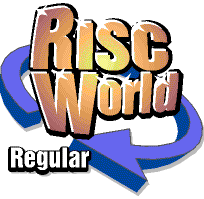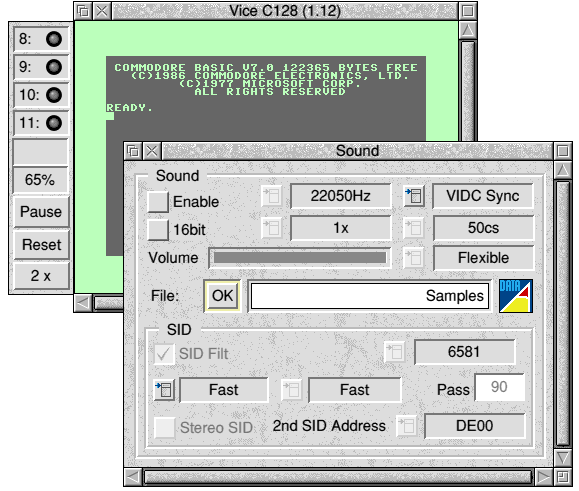



PD World
Paul Brett with the latest freeware and PD releases for RISC OS.
Basalt - Steve Drain
'Basalt' is a module that provides BASic ALTernative keywords. Basalt contains machine code routines to interpret new keywords or alternative uses for existing BASIC keywords. They are called by a special use of CALL and USR. Double click on '!Basalt' to open 'Basalt:Modules', which contains the Basalt module. For full instructions consult the supplied StrongHelp format manual. Some of the main features are:
- Basalt provides alternative keywords by extending the use of normal keywords and adding new keywords.
- It is written in hand-crafted assembler and new commands execute at BASIC speeds.
- Basalt uses only documented entries to the BASIC module and should be compatible with all versions.
- It has been been written to be 32-bit clean, but has not been tested.
- There is not yet a version of Basalt for BASIC64.
Basalt is simple to use. When the module is loaded, put *BasaltInit as the first effective line of a program and use the alternative keywords exactly as normal BASIC keywords.
Printers+ - Printers+ Developers
Printers+ is hosted as an open source project on SourceForge.net. SourceForge.net provides the ability to track feature requests and bug reports for hosted projects, and the Printers+ project will be making use of these features.

!Printers+ 1.91 has the following enhancements over previous versions:
- Longstanding problem with slow printing to certain Hewlett Packard printers has been resolved in latest version of ParallelDevice Driver in ROM.
- Paper feeds and output bins can now be configured for 'dp' and 'lj' printers, as well as for Postscript ones.
- The Printer connection window has been much enhanced with new connection methods. If the relevant filing systems are installed then !Printers will allow connection via LanManFS, LanMan98, LPR, JetDirect and USB. LPR, JetDirect and USB drivers are planned for future releases.
- A new format of PDF has been created that allows both standard PDF information and resources (palette files, paper feeds, output bins, paper sizes etc) to be bundled together. The user can then install these new PDFs just by dropping one file in. A tool, !PrtBundle, has been built to allow simple creation/extraction of these bundled PDFs.
- When using shared printers across Access networks resources for shared printers (such as palette files etc) no longer need to be installed locally on every machine.
- !Printers+ can now be run with a -quit flag on the command line. This starts !Printers+, loads the modules required and configures the default printer, then exits. By running !Printers+ in this way at startup applications can instantly print without needing to load !Printers+ manually. This also uses the minimum amount of memory.
- LJ based printing now copes better with non-A4 paper sizes.
- New Canon CX2 module (type 14) to cope with incorrect printout positioning when using printing from !Draw with newer Canon printers.
- Support for Device ID detection to allow automatic printer capability detection in later versions of !Printers+.
- Changes to the Default paper sizes to correct for small inaccuracies in Paper Size calculations in certain applications.
To report a bug in Printers+ visit http://sourceforge.net/tracker/?group_id=71687&atid=538622. To request a new feature for Printers+ visit http://sourceforge.net/tracker/?group_id=71687&atid=538625.
The Printers+ project has three mailing lists. The announce list is a very low volume list for announcement of new releases of Printers+ only. The users list is for discussion of the use of Printers+. The new development list is for discussion of the development of open source Printers+. To subscribe to any of these lists please visit the project mailing list page at http://sourceforge.net/mail/?group_id=71687
SpamStamp - Jan-Jaap van der Geer
SpamStamp is a program to help you filter out spam by adding extra headers to incoming mail indicating if it is spam or not. SpamStamp decides if a mail is spam by checking its contents and comparing that with past experiences. If you tell SpamStamp that it made a mistake, it will learn from that and therefore become better at differentiating between spam and non-spam.

SpamStamp does not filter or delete mail, it merely adds a header that you can use in your mail program to move it to a spam folder or whatever you want to do with it.
Thumbcat - Malcolm Ripley
ThumbCat catalogues images in two formats both on-screen in normal RISCOS windows and HTML format. The main features are:
- Handles - Sprites , Drawfiles , AVI's (from digital cameras) , JPEG's , EXIF's plus any file formats recognised by ImageFS or ChangeFSI
- Will build a catalogue of a directory tree of images.
- Files dragged to the iconbar icon will be interpreted and then displayed in a detail view.
- Directories dragged to the iconbar will be searched and all recognised images displayed in a thumbnail view.
- Creates JPEG thumbnails for fast re-creation of a thumbnail view.
- Essentially adopted the EXIF tags list for its own image database details.
- Almost all tag values can be edited. Some tags don't make sense to edit e.g. x-y dimensions !! Please note that when an EXIf file is handled the embedded tags are extracted into the Thumbcat database and can thus be edited. The tags within the file remain unchanged.
- Thumbnail views behave similar to filer windows in that :
- Images can be copied (by dragging) or moved (by shift dragging) between views.
- Images can be copied and modified by adjust dragging. In this case an options window will pop up allowing you to choose simple rotations and reflections and to change the filetype of the copy.
- Catalogues can be stored with images or remote from the images in a "pseudo" application. The pseudo application can be relocated without loss of functionality. Thus catalogues can be created of read only sources.
- HTML catalogues can be created. These will have relative links for catalogues with the images and absolute references for catalogues remote from the images.
- Configurable thumbnail and detail views.
- Thumbnails are self repairing once created.

Vice - RISC OS versions Andreas Dehmel
VICE is a Versatile Commodore Emulator, i.e. a program that runs on a Unix, MS-DOS, Win95/NT, OS/2, Acorn RISC OS or BeOS machine and executes programs intended for the old 8-bit Commodore computers. The current version emulates the C64, the C128, the VIC20, all the PET models (except the SuperPET 9000, which is out of line anyway), the PLUS4 and the CBM-II (aka C610).

If you have no idea what a Commodore 8-bit computer is, or have questions about how these machines are used, how the file formats work or anything else that is not strictly related to VICE, you should read the appropriate FAQs first. See section 14 (Contact information) in the supplied manual for information about how to retrieve the FAQs.
All the emulators provide an accurate 6502/6510 emulator, with emulation of all the opcodes (both documented and undocumented ones) and accurate timing. Unlike other emulators, VICE aims to be cycle accurate; it tries to emulate chip timings as precisely as possible and does so efficiently.
Please do not expect the C128, PET, PLUS4 and CBM-II emulators to be as good as the C64 or VIC20 one, as they are still under construction.
Signing off
That is it for this PD column. As usual if you have anything you would like featured please send it in to the RISC World editorial address.
Paul Brett